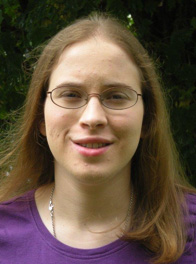
Rachel Ehrlich is a bioinformatics programmer who focuses on the assembly, annotation and comparison of bacterial genomes. She graduated from Carnegie Mellon University with a BS in biological sciences and an MS in computational biology.
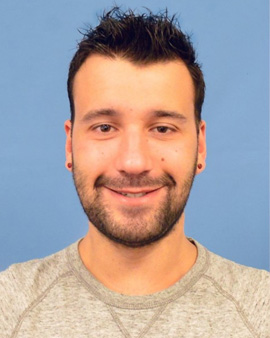
Donald C. Hall Jr. (DJ) is a postdoctoral research fellow under the direction of Professor Garth Ehrlich in the Department of Microbiology and Immunology. Dr. Hall obtained his PhD in 2020 in chemical biology/medicinal chemistry from Drexel University with a focus on the development of antibiofilm compounds. Dr. Hall’s research interests include computational drug design, structural bioinformatics, preclinical drug development, and standardization and development of biofilm models. Currently, his work focuses on the in silico development of novel antimicrobial agents for the treatment of persistent biofilm infections and COVID-19. Dr. Hall’s work bridges the gap between in silico modeling and in vitro studies of bacterial and viral therapeutic agents.
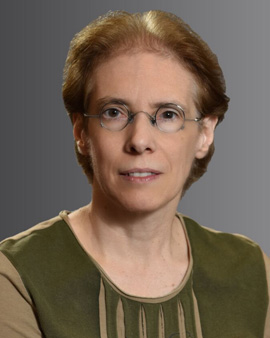
Lyn is a research assistant for Garth Ehrlich and Josh Mell. She has a master's degree in zoology from University of Florida. During her studies at UF, she became interested in wildlife conservation and chose a thesis project reflecting this interest. During this project, she observed a free-ranging troop of rhesus monkeys living in Florida to determine whether there were social and sexual behavioral differences between sterilized and nonsterilized females. After graduation, she worked with Dr. Robin Preston in the Department of Pharmacology and Physiology at Drexel University College of Medicine, examining the role of magnesium in cells using paramecia as her model. Lyn worked in that laboratory for almost 12 years. She then obtained a second master's degree in science communication from Drexel University. Lyn took a break from research for a few years to work as a medical editor and science writer but came back "home" to the College of Medicine to resume performing research.
Currently, she works on several projects: (1) association between bacteria in the brain and Alzheimer's disease; (2) comparison of Haemophilus influenzae strains between patients with otitis media and healthy individuals; and (3) characterization and evolution of mutator strains (strains with much higher mutation rates than normal) in Haemophilus influenzae.
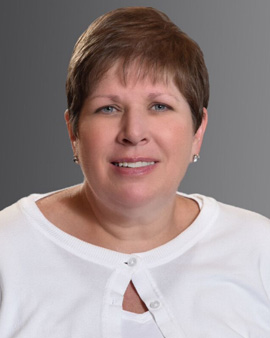
Carol Hope, MBA, executive assistant, joined the Center for Advanced Microbial Processing in December 2013 and provides administrative support to the director and its members. Have a problem or need an answer? Carol is your go-to person.
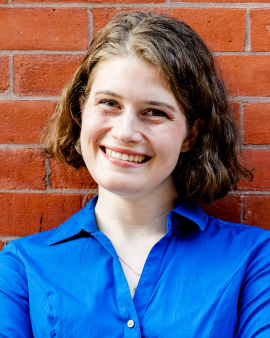
Katherine "Kaytie" Innamorati is a postdoctoral fellow in the CAMP Lab. She completed a BS in biochemistry and molecular biology from Gettysburg College in 2014 and went on to earn her PhD in molecular and cellular biology and genetics in Garth Ehrlich's lab in 2021. Her research focused on comparative genomics of mucosal pathogens, where she worked to identify genomic variation associated with phylogenetic structure and developed methods to identify genes associated with virulent phenotypes. Her current work is focused on the future directions of her dissertation projects, including identification of antibiotic resistant genes as biomarkers in the Gardnerella genus and analysis of hypothetical genes involved in virulence in the oral pathogen Porphyromonas gingivalis.
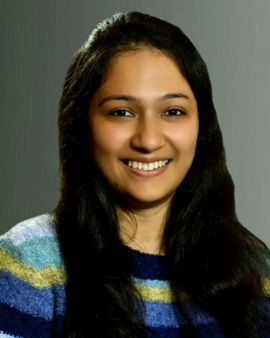
Bhaswati completed her PhD in 2008 from National Institute of Cholera and Enteric Diseases, Kolkata, India, on "Molecular characterization of Salmonella enterica serotype Typhi isolated from patients of typhoid fever in Kolkata, India." She came to the United States for postdoctoral studies in 2009 at the University of Virginia on "Iron Uptake mechanism of Francisella tularensis, a type A select agent." In 2011, she joined Drexel and now works to understand the molecular basis of bacterial pathogenesis and antibiotic resistance in Acinetobacter baumannii, Streptococcus pneumoniae, and Haemophilus influenzae, among other bacteria.
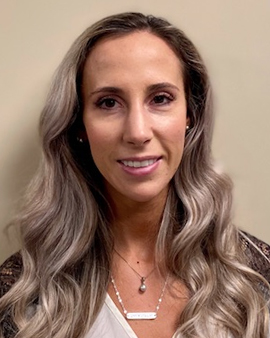
Danielle Piazza is a PhD student in Dr. Joshua Mell's lab in the Department of Microbiology & Immunology at Drexel University College of Medicine. Danielle received her bachelor of science degree in biology and Ithaca College in Ithaca, New York. After her undergraduate studies, she worked for approximately two years at a small biotech company in Warminster, Pennsylvania, and then entered Drexel University College of Medicine's Molecular & Cell Biology & Gentetics program in July 2016.
Shortly after beginning her doctoral career, Danielle joined the lab of Dr. Mell, who is a bioinformatician and specialist in Haemophilus influenzae natural transformation. Over the past five years, Danielle has spent her time researching the extent and limits to DNA uptake in this bacterium. Her work suggests that H. influenzae is capable of taking up and recombining extremely large DNA tracts, which allows the bacteria to alter its genome, leading to things such as antibiotic resistance.
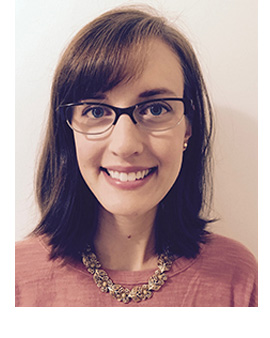
Amand Platt is a first-year student at Drexel, and she isinterested in bacterial genetics. Work for her master's thesis focused on horizontal gene transfer in mixed species bacterial biofilms. At Drexel, Amanda's current project is focused on characterization of bacterial non-ribosomal peptide synthetase related enzymes.
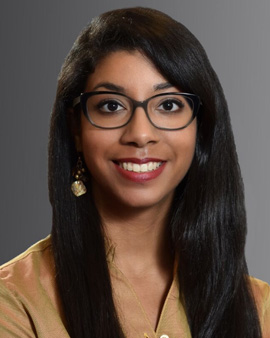
Kayla Socarras is a PhD student in Garth Ehrlich’s lab within the Department of Microbiology & Immunology at Drexel University College of Medicine. Prior to joining Drexel University, Kayla received her bachelor’s degree in biological sciences at the University of Saint Joseph. Afterward, she continued her education at the University of New Haven for a master’s degree in cellular and molecular biology; for her master’s thesis she researched the use of natural antimicrobials as therapeutic agents on the pathogen Borrelia burgdorferi, the causative agent of Lyme borreliosis, the most common vector-borne bacteria transmitted within the United States over the past decades. Upon finishing her thesis, Kayla was a post-graduate research fellow at the University of New Haven, where she researched Borrelia spp pathogenesis in Borrelial lymphocytoma, a cutaneous infection that occurs primarily within individuals infected with Borrelia spp in Europe.
Currently Kayla is continuing her research on the pathogenesis Borrelia spp within the Center for Advanced Microbial Processing (CAMP) at Drexel University. At CAMP, Kayla has also worked on characterizing the complex dynamics of tick-borne disease microbes within the tick microbiome in the United States. In addition to her research studies, Kayla has presented her research from her time at CAMP at both national and international meetings and conferences. She has spoken about her research on tick-borne diseases at several traditional and nontraditional media outlets such as television, newspapers, and radio as wells as social media platforms like Facebook and Twitter.

Josie worked with the center when she was a second-year graduate student completing her master's degree in infectious disease. She joined the lab in the summer of 2015 and worked on genomic and phenotypic characterization of Gardnerella vaginalis.
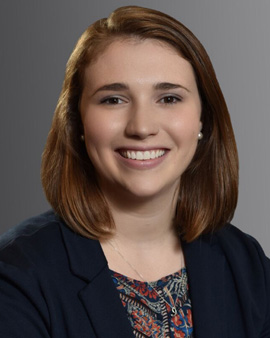
Originally from southern New Jersey, Laura moved to Philadelphia in 2006 to attend Temple University where she earned her bachelor of science in biology. In 2010, she began the Interdisciplinary Health Science program at Drexel University College of Medicine and completed her master of science with a concentration in biochemical and pharmacologic principles in 2012. Her project focused on the role of extracellular signal related kinases and beta-catenin signaling in the Tsk2/+ mouse. She left Drexel for a short time to work as a biotechnician in Merck's Manufacturing Division of the Varicella zoster virus vaccine. She then worked as a research biologist for Dynamis Therapeutics, where she studied the effects of a variety of natural cell stimulants and inhibitors. She joined the CAMP team in 2014 and studied Haemophilus influenza alongside Dr. Benjamin Janto.
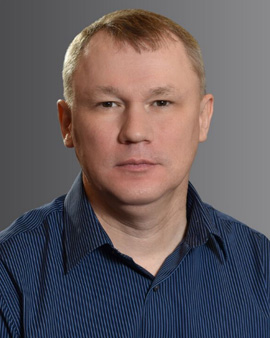
Dr. Sergey Balashov was the Genomics Core Facility manager in the Department of Microbiology & Immunology at Drexel University College of Medicine until 2017.
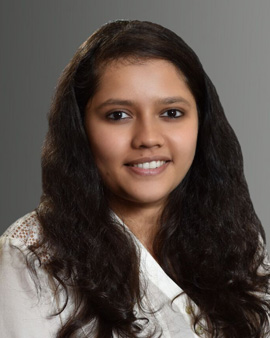
Archana was a bioinformatician for the Center for Advanced Microbial Processing. Her area of interest was microbiomics and analyses of large datasets from current generation sequencing technology. Archana spent most of her time with CAMP programming software for developing new custom analyses pipelines and creating visualizations to summarize and illustrate results of these analyses.
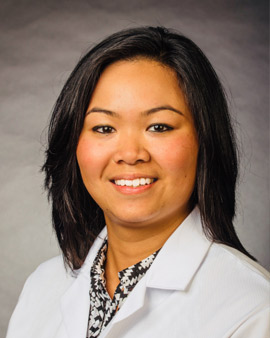
Kristen Buenconsejo was a master's student in the Microbiology and Immunology program. Before coming to Drexel, she studied at Ball State University in Muncie, Indiana, majoring in biology with a concentration in microbiology and a minor in chemistry. There, Kristen performed undergraduate research under the supervision of Dr. Douglas Bernstein. She studied the effect of mutations on pathogenicity of C. albicans utilizing the CRISPR/Cas9 system. As a graduate student at Drexel University, she worked under the supervision of Dr. Joris Beld, performing secondary metabolite and natural product discovery on Myxobacterial species.

Tyra Davis studied in the Master of Science in Infectious Diseases program at Drexel University. Prior to attending Drexel, Tyra obtained a bachelor of science degree in biology and sociology from Jacksonville University in Jacksonville, Florida. Tyra has a special interest in medical science and a passion for infectious disease control. As a member of Dr. Joris Beld’s lab, Tyra’s research interests at Drexel were dedicated to Vibrio cholerae and fatty acid biosynthesis.
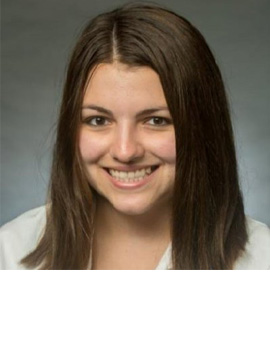
Courtney Fesko was a biochemistry master’s student at Drexel University and worked in the lab of Dr. Joris Beld. Prior to attending Drexel, Courtney received her bachelor’s degree from Wells College in Biochemistry and Molecular Biology while also minoring in Mathematics and Physics. Her undergraduate research was in computational chemistry, and aimed to determine the intermediate state of a novel cancer drug. After graduating, she worked as a laboratory technician for the dairy industry. At Drexel she studied the E. coli APE gene cluster and the production of secondary metabolites.
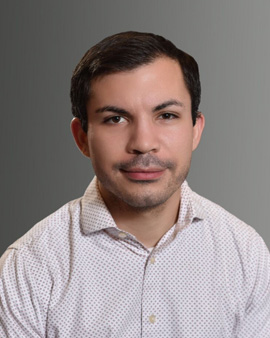
Ariel Gonzalez served as a technician in the laboratory of Dr. Joshua Chang Mell until fall 2018, studying the environmental and evolutionary mechanisms responsible for genetic recombination in Haemophilus influenzae. Prior to arriving at Drexel, Ariel spent three and a half years working in the pharmaceutical industry, optimizing procedures for a viral potency assay designed to test the efficacy of shingles and chickenpox vaccines. Ariel graduated with a bachelor of science in molecular and cell biology, and ecology and evolutionary biology from the University of Connecticut, where his undergraduate research thesis focused on the mechanisms of stem cell lineages involved in early mouse embryogenesis. Ariel now works as a cell culture scientist for Eurofins Lancaster Laboratories via a contract maintained at their client’s vaccine analytics department, where he conducts quality control assays to assess the efficacy of novel biologics and vaccines currently under development in Phase I and II clinical trials.
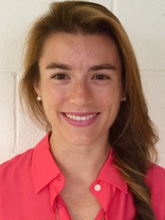
Nora Hajnoczky worked as a lab technician for Joshua Mell. She graduated from Dickinson College (Carlisle, Pa.) in 2012, where she studied neuroscience and biology. After graduating, she dedicated the next few years to working in a medical malpractice law firm in Washington, D.C., and studying sea turtle nesting habits in Western Australia. After that, Nora studyed Haemophilus influenzae (a naturally competent microorganism) to gain a clearer picture of genetic variation. She was interested in working for Josh in hopes of strengthening her understanding of genetics and microbiology prior to continuing her education in medicine.
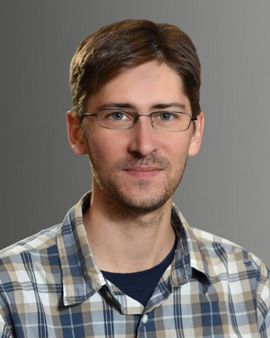
Benjamin Janto, PhD, was an assistant professor in the Department of Microbiology & Immunology. While at Drexel, his laboratory worked toward the goal of developing alternative targeted treatment strategies to combat chronic bacterial biofilm disease.
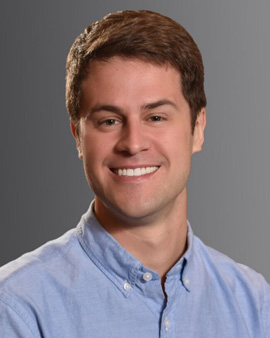
Eric LaBouff was an MD/PhD student in biomedical engineering who was advised by Drs. Garth Ehrlich and Ming Xiao. Eric studied biomedical engineering at Rutgers University and spent some time working in the biotechnology industry before coming to Drexel's MD/PhD program. His research included characterizing occult orthopaedic biofilm infections and developing optical genome mapping technologies.
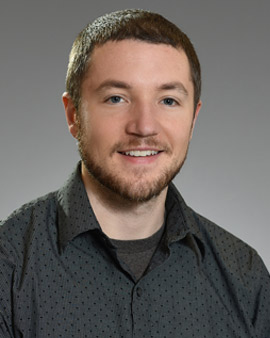
Steven holds a bachelor of science in biology with microbiology concentration from West Chester University of Pennsylvania. As a research assistant at WCU, Steven performed experiments investigating the behavioral effects of various compounds in planarians. Before joining Drexel, Steven worked in the biopharmaceutical industry producing monoclonal antibodies. As a research assistant for the Genomics Core Facility, Steven performed nucleic acid quantitation, library construction and next-generation sequencing in coordination with the Center for Advanced Microbial Processing.
In his free time, Steven enjoys playing the drum kit and listening to music.
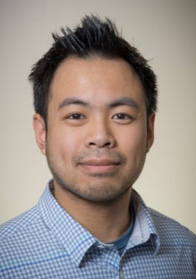
Jason Limbo joined the Genomics Core Facility in April 2015 as a research assistant, having previously worked in industry as a senior clinical laboratory technician at Medical Diagnostics Laboratories L.L.C. in New Jersey. Jason went on to get a graduate certificate in health information technology from Columbia University. He joined Sergey Balashov, lab manager, to support the Centers for Genomics Sciences and Advanced Microbial Processing and other affiliates by providing next-generation sequencing services on a variety of platforms including Illumina NextSeq and Pacific Biosciences RSII Instrument.
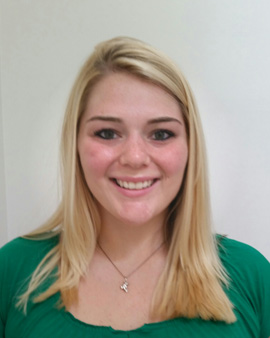
Haley Majer graduated with a bachelor of science degree in biology from the Pennsylvania State University in 2015. She then worked in industry for a year as a bio-pharmaceutical microbiologist, which encouraged her to pursue a higher education in microbiology with an interest in antimicrobial discovery and characterization. Researching biosynthetic gene clusters that encode secondary metabolites with known or unknown antimicrobial properties caters to all of her interests, and she is very excited to continue her thesis work in this field in the pursuit of her PhD.
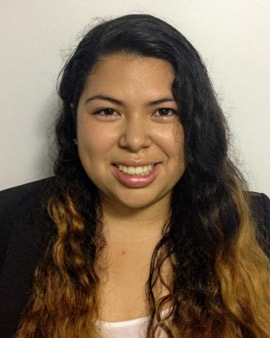
Skarleth Moran graduated with a bachelor’s degree in biological sciences from Rutgers University in 2016. She became interested in studying infectious diseases, which led her to the master’s program at Drexel University. While at Drexel she studied virulence and fatty acid biosynthesis pathways in Vibrio cholerae in the Beld Lab.
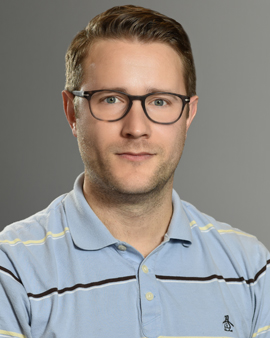
BS, Medical Technology, University of Delaware (2008)
PhD, Microbiology & Immunology, Drexel University (2020)
After graduating from the University of Delaware, Kevin Raible obtained his certification as a medical laboratory scientist with expertise in the fields of clinical chemistry, hematology, transfusion medicine and clinical microbiology. He then worked in an infectious disease laboratory for three years in the bacteriology, virology, mycology and parasitology departments. During this time, he found his passion for the field of microbiology and immunology. Kevin then took a job at the Center for Neurodegenerative Disease Research (CNDR) at the University of Pennsylvania. At CNDR, he learned the skills and techniques that are required to perform basic research.
The primary focus of Kevin's research at Drexel was the identification and characterization of virulence factors in the bacteria Haemophilus influenzae in an ear infection (otitis media) model. H. influenzae is an opportunistic pathogen of the upper respiratory tract and is the cause of considerable morbidly globally, primarily in children. Using both phenotypic selection assays along with statistical genetics, he aimed to gain a better mechanistic understanding how H. influenzae causes otitis media infections.
View More.
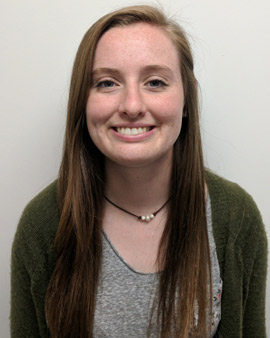
Breanna Tyrell was a student working in the Center for Advanced Microbial Processing while she was a first-year Microbiology and Immunology master’s student at Drexel University. She graduated from Ursinus College with her bachelor’s degree in biology and a minor in studio art. During her undergraduate career, she spent her summers doing research at the United States Department of Agriculture (USDA) with Dr. Brendan Niemira on the use of non-thermal cold plasma as a food-grade disinfectant. As a Drexel student, she researched corrinoid biosynthesis in the laboratory of Dr. Amy T. Ma.
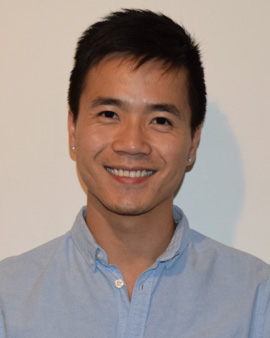
Tuan Vo graduated from James Madison University with a bachelor's of science in biology. He served in the CAMP lab while he was a second-year student in the Master of Science in Forensic Science program at Drexel. In Dr. Beld’s lab, Tuan studied the microbiome found worldwide known as "Pink in the Sink." The aim of his project was to extract and identify secondary metabolites from the microbiome for therapeutic uses.